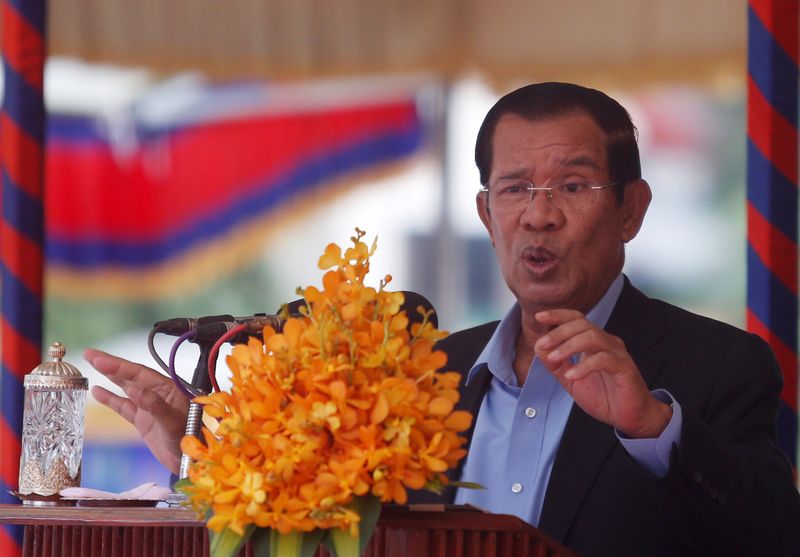WASHINGTON (Reuters) - Leading U.S. senators said on Thursday they plan to reintroduce legislation that would provide for sanctions to freeze assets of senior Cambodian officials who undermine democracy, engage in corruption, or otherwise violate human rights.
The bipartisan Cambodia Democracy and Human Rights Act planned by Democratic Senators Ed Markey and Dick Durbin and Republican Marco Rubio would also require the U.S. president to submit a report to Congress on China's activities in Cambodia assessing whether this had caused a deterioration of democracy and human rights.
A statement from Markey's office said sanctions would include blocking of assets and that the bill - an earlier version of which was introduced in the previous Congress and passed the House - would codify exiting visa restrictions on Cambodian officials.
It would also allow the suspension of sanctions if the president certified that Cambodia was "making meaningful progress towards ending government efforts to undermine democracy, ending related human rights violations, and conducting free and fair elections."
Markey and Rubio focused their criticism on Cambodian Prime Minister Hun Sen, who has been in power for more than 35 years.
"This legislation makes clear that the United States will not stand by as Hun Sen and his cronies corrupt Cambodian democracy, persecute and jail opposition and political activists, target free speech and independent media, and enrich themselves through rampant corruption," Markey said in the statement.
Rubio referred to Hun Sen as a "dictator" who had cracked down on opponents, including the U.S. radio station Radio Free Asia. He said Cambodia "continues to backslide" after making progress in earlier decades toward democratization.
In June, Deputy Secretary of State Wendy Sherman expressed concern during a visit to Cambodia about China's military presence there and sought clarification on the demolition of U.S.-funded buildings.
Sherman, the most senior U.S. official to visit Cambodia in years, urged it to "maintain an independent and balanced foreign policy, in the best interests of the Cambodian people."

Ahead of that meeting, Cambodian government spokesman Phay Siphan called for dialogue between Cambodia and the United States.
"There are some issues that the United States doesn't understand clearly about Cambodia and that Cambodia does not understand the intentions of the United States," Phay Siphan told Reuters.